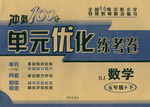题目内容
The swimming pool is used ________ all the children ________ the neighborhood.
- A.in common with; at
- B.out of the common; during
- C.in common by; in
- D.out of the common; of
in common意为“共同地”,in the neighborhood“在邻里”。

 云南师大附小一线名师提优作业系列答案
云南师大附小一线名师提优作业系列答案 冲刺100分单元优化练考卷系列答案
冲刺100分单元优化练考卷系列答案Some years ago, on a hot summer day in south Florida, a little boy decided to go for a swim in the old swimming hole behind his house. He flew into the water, not realizing that as he swam toward the middle of the lake, an alligator (美洲鳄) was swimming toward the shore.
His father working in the yard saw the two as they got closer and closer together. In utter fear, he ran toward the water, yelling to his son as loudly as he could.
Hearing his voice, the little boy became alarmed and made a U – turn to swim to his father. It was too late. Just as he reached his father, the alligator reached him. From the dock, the father grabbed his little boy by the arms just as the alligator snatched his legs. That began an incredible tug – of – war (拔河) between the two. The alligator was much stronger than the father, but the father was much too passionate to let go. A farmer happened to drive by, took aim and shot the alligator.
Remarkably, the little boy survived. His legs were extremely scarred by the vicious attack of the animal. And, on his arms, were deep scratches where his father’s fingernails dug into his fresh in his effort to hang on to the son he loved.
The newspaper reporter who interviewed the boy asked if he would show his scars. The boy lifted his pant legs. And then, he said to the reporter, “But look at my arms. I have great scars on my arms, too. I have them because my dad wouldn’t let go.”
You and I can identify with that boy. We have scars, too. No, not from an alligator, but the scars of a painful past. Some of those scars are unsightly and have caused us deep regret. But, some wounds, my friend, are because someone has refused to let go. In the midst of your struggle, someone has been there holding on to you.
If you have the scars of someone’s love on your arms, be very, very grateful. Someone in your life did not and will not ever let you go.
Never judge another person’s scars, because you don’t know how they got them.
【小题1】 Which of the following is the most closely related to the underlined word “passionate”?
| A.determined | B.anxious | C.frightened | D.courageous |
| A.painful and fearful | B.regretful and panic |
| C.proud and grateful | D.excited and thankful |
| A.scars always remind people of their past experiences |
| B.wounds in the mind are more painful than those in the body |
| C.a painful past always leaves scars on a person’s mind |
| D.scars do not necessarily mean pain at all times |
| A.Be grateful to a painful past, for you can always learn something from it. |
| B.Other people’s criticism or blame may hurt you, but if it is for your own good, you should take it thankfully. |
| C.The swimming hole of life is filled with danger, but you don’t need to be too serious about it as someone will never let you go. |
| D.If someone hurts you, be grateful to them, for they mean no harm |

